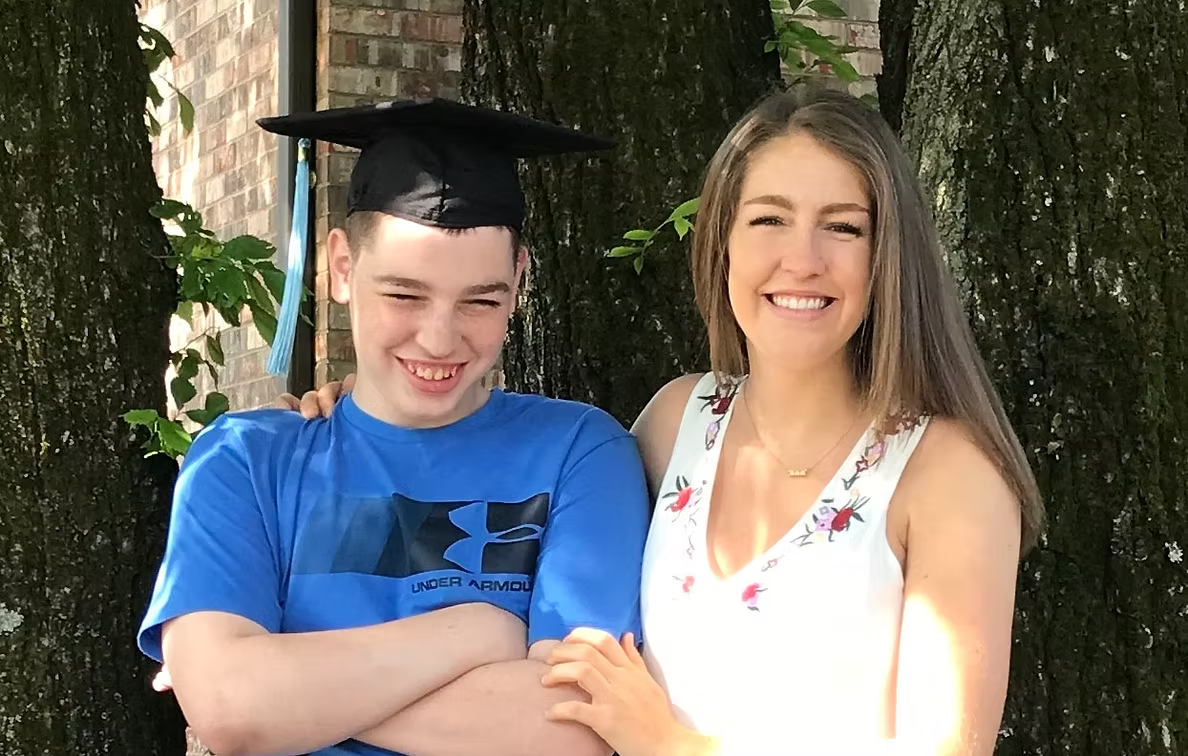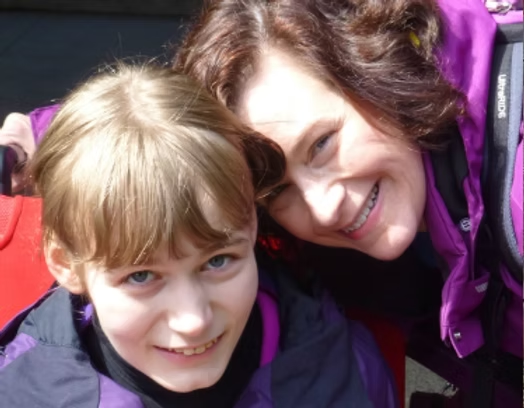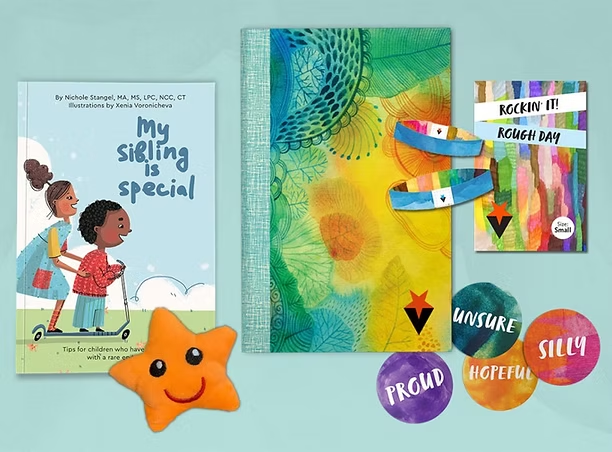When you are trying to get to know someone new on a deeper level, there are probably a few things that you default to talking about; those things that make you who you are, whether a favorite hobby, how you grew up, or defining moments in your life. For me, one of the things that people need to know in order to fully know me is my identity as a sibling of someone with a disability & rare disease. My younger brother, Elliot, has Dravet Syndrome, a rare & severe form of epilepsy. Along with Dravet, he has a significant intellectual disability, behavioral challenges, and additional comorbidities that impact his daily life.
Having my baby brother carried away by an ambulance was a recurring event in my childhood. Though you’d expect those big, scary experiences to be the ones that had the most impact on me, truthfully, I was influenced more in the small moments; the day-to-day things that were different in my life due to seizures & Dravet. All siblings cope differently. Growing up with a sibling with a disability &/or disease can cause anxiety, stress, resentment, and challenges that come with those big feelings. And yet, I believe that us siblings become stronger for it in many ways too.
As a sibling to someone with a significant disability & seizure disorder, I learned quickly that my brother truly does have “special needs.” Oftentimes, these needs meant that our family couldn’t do things in the typical way. As a family, we didn’t go out to eat much together because my brother’s behaviors were challenging & disruptive. We didn’t all go to the movies together because he was unable to sit through the whole film. We’d have to leave family gatherings early due to a seizure or behavior. He wasn’t able to come in the sprinkler with me in the summertime for fear of triggering a big seizure. As a child, even though I understood why, these things naturally brought disappointment. There were years that these differences in the way my family lived were really hard on me and others where it just felt the norm. As an adult, I can reflect back and see how hard my parents tried to give our lives as much normalcy as possible, but as a kid, I didn’t always see that. There were scary, life-threatening moments that I learned to cope with and there were smaller moments that selfishly brought frustration or pain, but these combined experiences became learning opportunities for me to grow.
Because of my brother, I learned to grow through adversity.
To no one’s fault, there were times I felt invisible or less important growing up. To cope, I became a helper. My brother was a time-suck. He had therapies, doctor’s appointments, and generally just needed more support and attention throughout his day than me or my older brother. Though I again knew the “why,” it didn’t stop me from wanting the attention from my parents (or rather, probably just wanting to be the center of attention). I found that doing things to be helpful always earned me praise whether helping watch my brother or helping with extra chores. Though it started out of a desire for more attention from my parents, this identity as a “helper” started to grow from a more genuine place as I got older. My younger brother and I grew really close when I was in middle/high school. During that time, my love for helping with him translated to helping with the special education program at my school. Nine years later, and I am now a special education teacher.
My brother gave me direction & purpose.
Elliot has always been an entertainer. Along with his Dravet Syndrome, he also has an intellectual disability and I think in some ways, that frees him. He doesn’t have the same social awareness that me or my friends have, he just wants to entertain people by any means possible. Growing up, when I had friends come over, he wanted to be a part of our “crew,” but he didn’t quite know how. So, he’d shake his hips & dance and do everything in his power to get us to laugh, sometimes to my parents’ disapproval when his way of getting us to laugh became saying curse words. He will go to any length to make people smile, without a care in the world!
My brother taught me to care less about what others think.
My brother has molded me in so many ways. My relationship & childhood growing up with him is a huge part of my identity. I love him and I love who I am because of him. But, being a sibling to someone with a rare disease and a significant disability is not easy. I love my younger brother and he has taught me many things, but there were also plenty of times that things just felt hard.
You grow stronger through the hardest moments and sometimes you may become better for them. But sometimes you might not, and that’s okay too. When your sibling lands in the hospital or has another big seizure, it is normal to feel intense amounts of anxiety or stress. Despite it being your normal, it’s not “normal.” It’s scary. There might be times where you feel like you want to be in control because everything else in your life feels out of control; that’s normal too. And you may reach a point in your life where you need to disconnect before being able to be all in for your sibling again. If you need to step away to find yourself, don’t feel guilty. Give yourself permission to take care of you too.
If you are a sibling, know that you’re not alone. There are others living similar experiences to you, even though at times it doesn’t feel like it. Find your people. Maybe this is connecting with other siblings with similar experiences like I did or maybe it is finding close friends that just make you feel understood. No matter the way, find your crew. It’s important to feel heard and known, even in the ways you don’t feel proud of.
If you are a parent, don’t forget about the siblings. You are trying your hardest to hold it all together & provide a sense of normalcy for your whole family and one day, your child without extra support needs will fully understand, but when they’re little, they need you. They need you to be honest with them as much as you can at an age-appropriate level and they need your attention. Carve out time, whether once a week or once a month, that is exclusively for them. Though they may not have as many special needs, they need to feel special too.




